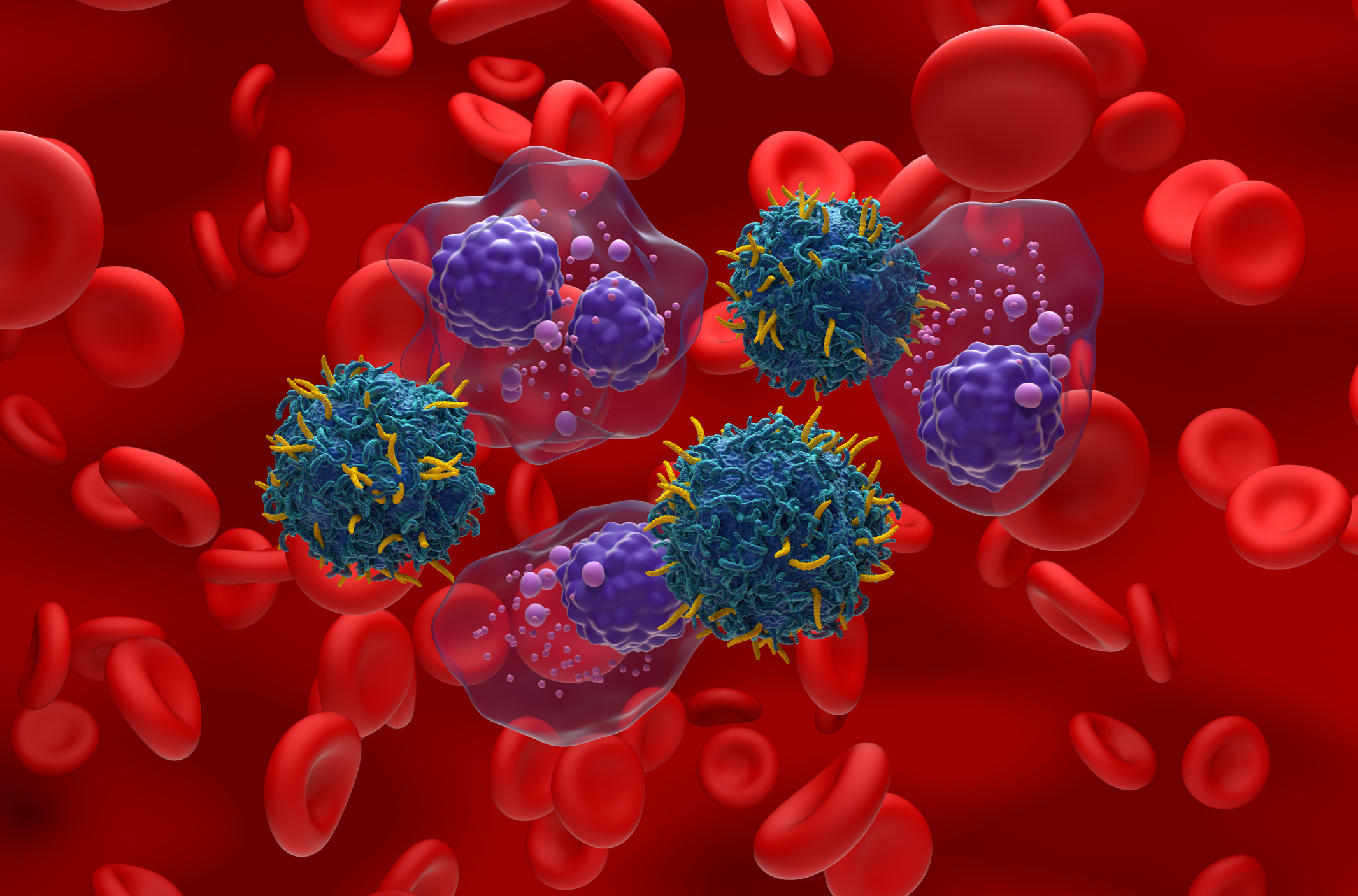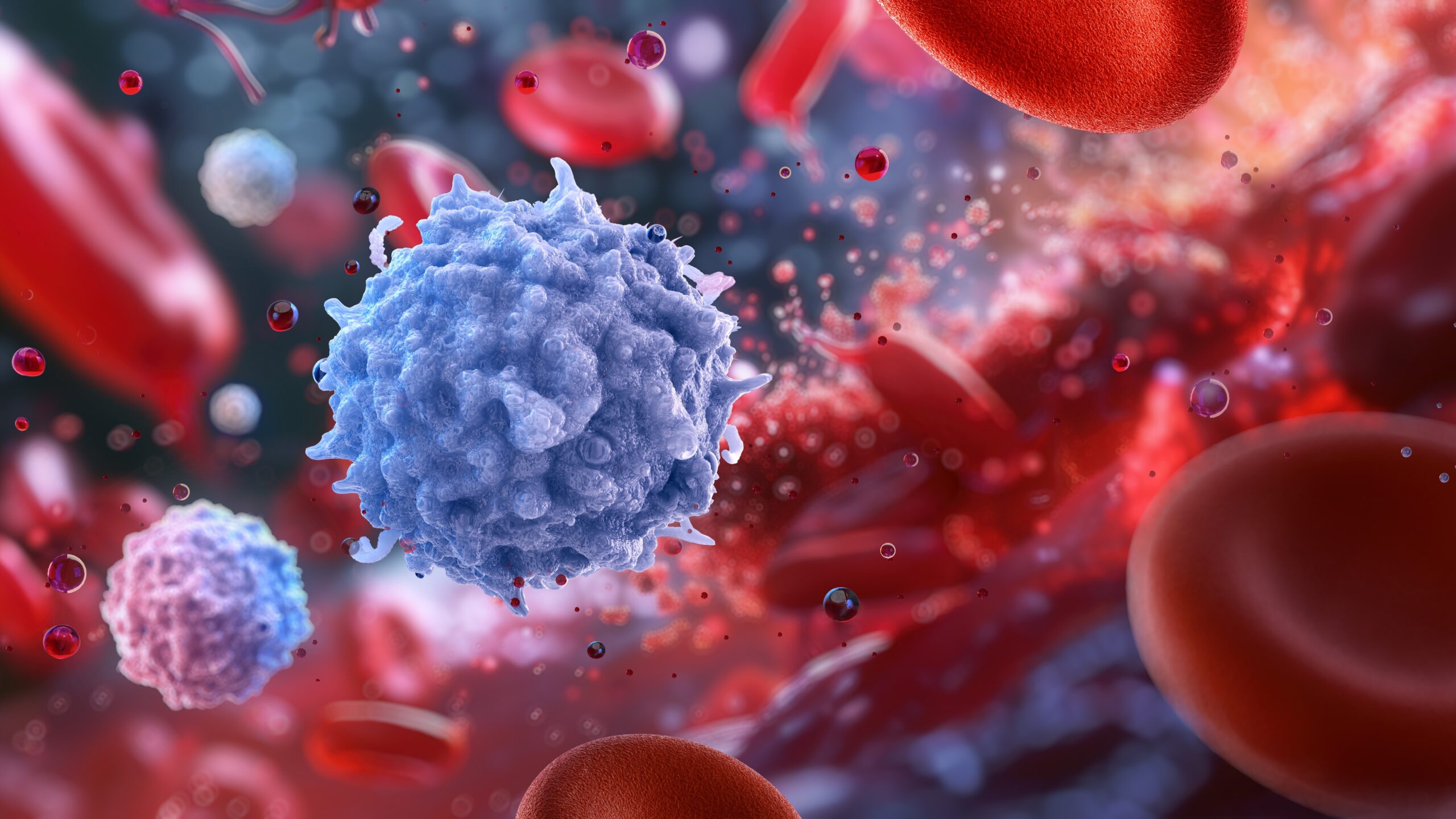
Extended genetic profiling can identify patients with multiple myeloma (MM) who derive “exceptional benefit” from lenalidomide maintenance, according to a recent study.
Aikaterini Panopoulou, of the Institute of Cancer Research and the Royal Marsden Hospital in London and colleagues conducted the research and published their findings in Blood.
They investigated using extended molecular profiling to predict outcomes because it “remains challenging” to predict if an individual patient will benefit from lenalidomide maintenance therapy after autologous hematopoietic stem cell transplant (ASHCT).
The study included patients from the National Cancer Research Institute Myeloma XI trial who were randomized to receive lenalidomide maintenance or undergo observation after AHSCT. The researchers genetically profiled the patients for t(4;14), t(14;16), t(14;20), del(1p), gain(1q), and del(17p) and computed the co-occurrence of risk markers.
They calculated progression-free survival (PFS), subsequent progression (PFS2), and overall survival (OS) from the time of maintenance therapy randomization.
The study included 556 patients. Of those patients, 17% had double-hit MM, which was defined as having at least two risk markers; 32% had single-hit MM, which was defined as having one risk marker; and 51% did not have any risk markers.
Patients with single-hit MM “derived the highest PFS benefit” from lenalidomide maintenance, according to the study’s authors. The patients with isolated del(1p) who received lenalidomide maintenance had an approximately 40-fold reduced risk of progression or death compared with those who underwent observation. Furthermore, patients with del(17p) who received lenalidomide maintenance had a 10-fold reduced risk of progression or death, while those with t(4;14) had a sevenfold reduced risk of progression or death, compared with patients who underwent observation.
The median PFS was 10.9 months in those who underwent observation, while it was 57.3 months for patients receiving lenalidomide maintenance.
They jointly analyzed patients with del(1p), del(17p), and t(4;14) for PFS2 and OS. Lenalidomide maintenance was associated with a longer PFS2 than observation (median PFS, 60.5 months vs 29.7 months; hazard ratio [HR], 0.27; 95% CI, 0.13-0.54; P=.0002). Lenalidomide maintenance was also associated with a longer median OS than observation (not reached vs 70.8 months; HR, 0.41; 95% CI, 0.18-0.93; P=.032)
However, patients with isolated gain(1q) “derived no benefit” from lenalidomide maintenance, while those with double-hit MM showed “limited benefit,” the study’s authors wrote.
“Extended genetic profiling identifies patients deriving exceptional benefit from lenalidomide maintenance and should be considered for newly diagnosed patients to support management discussions along their treatment pathway,” the researchers concluded.
Reference
Panopoulou A, Cairns DA, Holroyd A, et al. Optimizing the value of lenalidomide maintenance by extended genetic profiling: an analysis of 556 patients in the Myeloma XI trial. Blood. 2023;141(14):1666-1674. doi:10.1182/blood.2022018339






 © 2025 Mashup Media, LLC, a Formedics Property. All Rights Reserved.
© 2025 Mashup Media, LLC, a Formedics Property. All Rights Reserved.